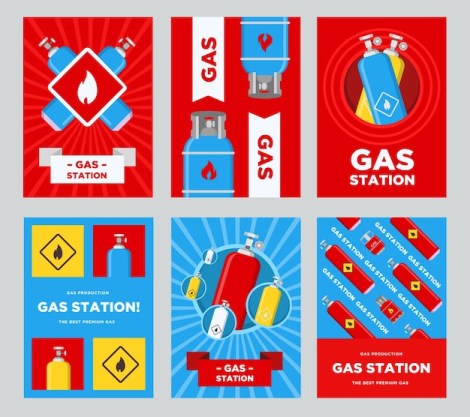Interesting Gas Facts

Natural gas is a cleaner and more environmentally friendly energy source.
The natural gas industry supports millions of jobs worldwide.
Natural gas is versatile and can be used for heating, cooking, electricity generation, and transportation.
Natural gas is composed mainly of methane, a potent greenhouse gas.
Shale gas extraction has revolutionized the energy industry.
The United States is the world’s largest producer of natural gas.
Natural gas can be liquefied and transported as LNG.
Some countries heavily rely on natural gas exports for their economic stability.
Natural gas can provide a stable energy supply during extreme weather conditions.
Switching from coal to natural gas can significantly reduce air pollution.
Natural gas-powered vehicles have lower emissions compared to traditional gasoline vehicles.
Natural gas is a crucial backup source during power outages.
Combined heat and power systems can maximize the efficiency of natural gas use.
Burning natural gas produces water vapor and carbon dioxide as byproducts.
The discovery of natural gas dates back to ancient civilizations.
Natural gas exploration can have environmental impacts if not properly regulated.
Advancements in technology have made natural gas extraction safer and more efficient.
Natural gas can be stored underground for future use.
Investing in natural gas infrastructure can boost economic growth.
Interesting Gas Facts part 2
Natural gas is used as a feedstock for many industrial processes.
Renewable natural gas can be produced from organic waste materials.
The cleanliness of natural gas makes it an ideal fuel for power plants.
Natural gas prices can fluctuate due to supply and demand factors.
Natural gas pipelines span thousands of miles, connecting consumers to suppliers.
Burning natural gas releases less carbon dioxide than burning coal or oil.
Natural gas can be compressed for use in vehicles as CNG.
Natural gas is odorless and colorless, a safety feature added by adding a distinct smell.
Natural gas reserves are vast, ensuring its availability for generations.
The extraction of natural gas can lead to the release of harmful greenhouse gases if not properly managed.
The methane emissions from natural gas infrastructure are an area of concern for climate change.
Natural gas power plants are highly efficient, converting a high percentage of fuel energy into electricity.
Natural gas is often found alongside petroleum deposits.
Countries with large natural gas reserves have a strategic advantage in the energy market.
Natural gas can be converted into synthetic fuels.
Natural gas can be used as a chemical feedstock for the production of plastics, fertilizers, and other materials.
Evaluating the true environmental impact of natural gas requires considering the full life cycle of its extraction, production, and use.
The use of natural gas for cooking can provide precise temperature control and instant heat.
Natural gas underground storage facilities are essential for balancing supply and demand.
Excessive reliance on natural gas can hinder investments in renewable energy sources.
Natural gas can play a vital role in reducing energy poverty in developing countries.
Energy diversification includes utilizing various sources, including natural gas, for a more sustainable future.
The boom in natural gas production has caused a shift in global energy dynamics and geopolitical interests.
Natural gas can be cost-effective for residential heating compared to other fuel sources.
The reserve-to-production ratio is a measure of how many years the current natural gas reserves can sustain current production levels.
The potential for natural gas as a transition fuel towards a low-carbon future depends on the development of carbon capture and storage technologies.